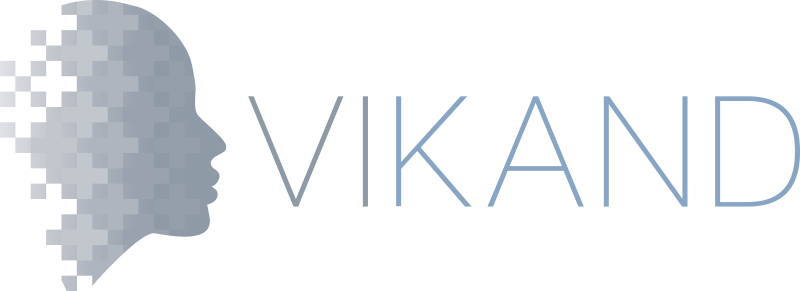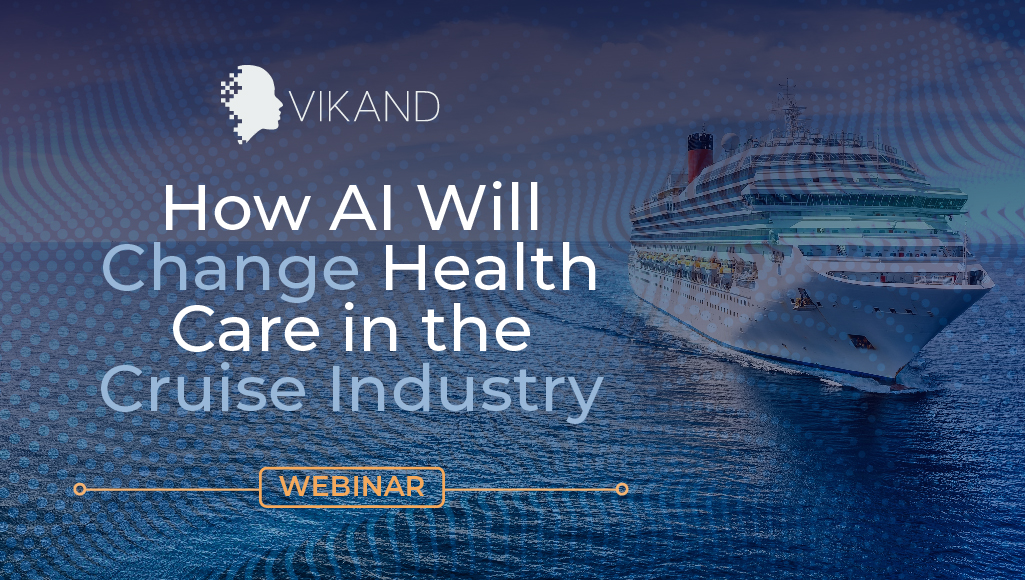
Why AI is Poised to Transform Maritime Healthcare
On July 30th, VIKAND hosted an insightful webinar to explore the transformative power of Artificial Intelligence (AI) in maritime healthcare. The discussion was led by Peter Hult, CEO, and Ronald Spithout, Managing Director of OneHealth. Together, they explored how AI is becoming integral to VIKAND’s broader maritime healthcare strategy to enhance efficiency, safety and the overall wellbeing of crew members.
AI is, in short, the simulation of human intelligence by a computer system, enabling it to perform tasks such as learning, reasoning and problem-solving. At VIKAND, AI will play a critical role in our goal of moving beyond healthcare crisis management to focus fully on delivering care that is not just proactive, but predictive.
The Future is Predictive
Right now, healthcare at sea is largely reactive. From telemedicine to mental help lines, most care is rendered in response to an incident. This approach carries a high risk to health, life and safety, as well as high costs. VIKAND has differentiated itself through a focus on proactive care, which is the foundation of our crew asset management approach. However, our long-term vision is predictive healthcare at sea.
Take the analogy of a car. Older cars with low technology will inevitably end up broken down on the side of the road. But modern cars, with sensors and computers constantly monitoring the health of each system, are unlikely to leave you stranded. If something needs your attention, the car will alert you before it becomes an emergency.
This is how VIKAND views the future of healthcare, with AI-powered systems that not only reduce risk, but actively improve the life and welfare of seafarers. By monitoring crew health in real-time, AI can help operators build predictive risk profiles that keep seafarers healthy, which will only enhance workforce resilience and crew sustainability.
AI Tools Are Already Here
VIKAND’s commitment to proactive crew care includes strategic partnerships with a number of AI tech companies. For example, we’re integrating new tools from Riverr, a deeptech startup based in Singapore, into our data management system to help detect potential health risks. Thanks to Riverr, we have data to support preventative measures that may ultimately result in fewer medical emergencies and improved crew well-being.
We’ve also partnered with Scoutbase, whose data collection tools generate instant insights into life onboard, from safety and critical issues to seafarer welfare, mental health, happiness and more. One simple but powerful use case is collecting anonymous feedback on food selections. Data shows that negative feelings about onboard food is actually a major factor in depression and dissatisfaction.
With the power of AI, VIKAND is turning data and analytics into more effective crew care, with truly predictive insights at every level, from individual to vessel to the entire fleet. And perhaps most importantly for operators, this kind of proactive investment in crew care has a direct impact on their bottom line.
Maritime Work is Increasingly Dangerous
As crew injuries and emergencies continue to rise year-over-year – especially mental health and stress-related issues, such as burnout and depression – continuing to view crew members as an expendable commodity is wholly unsustainable. Operators must invest in their continued operability no differently than they would a ship's engine.
So, what does predictive care look like in practice, and how does AI help? Imagine each crew member has a wearable device that collects real-time data about sleep, stress, energy, heart rate, breathing and more. AI can analyse this data to determine if a crew member is at risk for an exhaustion-related accident, psychological crisis, or a serious health issue that may not be visible yet.
This type of real-time risk profiling wasn’t possible before AI, which makes the future of predictive care more exciting than ever. Data is knowledge, and AI is simply better than humans at analysing large data sets for useful information and informed predictions.
Artificial Intelligence, Real Impact
At VIKAND, we believe the future of predictive maritime healthcare rests on three core components: Real-time feedback, early detection and personalised care – all of which rely on AI. With greater computing power, we can turn mountains of data into actionable insights that mitigate risk at every level.
“With AI, we have the opportunity to generate real-time feedback,” says Ronald Spithout. “That opens the possibility of early detection and risk prediction, rather than reaction, and the ability to offer personalised healthcare advice.”
Learn more about the potential for AI in healthcare by signing up for expert workshops hosted by VIKAND. Our team would love to include you in specialised ideation and education sessions where you can learn more about leveraging AI tools to improve your cruise line operations.


